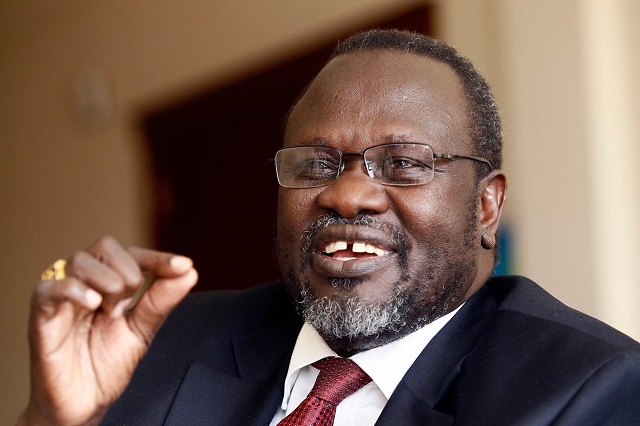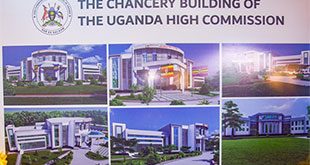
Juba, South Sudan | Xinhua | The Sudan People’s Liberation Movement/Army-In-Opposition (SPLM/A-IO) faction under First Vice President Riek Machar on Monday denied agreeing with President Salva Kiir on the ratios within the unified army command.
Puok Both Baluang, acting press secretary for Machar, dismissed a recent claim by Martin Elia Lomuro, the minister of Cabinet Affairs, alleging they have agreed to share positions on the unified army command.
Lomuro told journalists on Saturday at the end of the cabinet meeting that the opposition in the coalition government agreed to take 40 percent positions, while the Interim Transitional Government of National Unity (ITGoNU) led by Kiir took 60 percent positions.
“We strongly refute this false information and also underscore that the issue remains unresolved,” Baluang said in a statement issued in Juba, capital of South Sudan.
He disclosed that the Intergovernmental Authority on Development (IGAD), a regional body, mediated the 2018 revitalized peace deal initially proposed a 55:45 ratio for ITGoNU and opposition, respectively, insisting that the proposal by IGAD for the unified army command has not even been discussed to its conclusion by the parties.
He said that in May 2019 at a workshop held in Juba by IGAD and the Reconstituted Joint Monitoring Evaluation Commission (RJMEC) which monitors the peace deal, determined a 50:50 ratio for both ITGoNU and the opposition.
Baluang, however said this was rejected by ITGoNU.
South Sudan descended into conflict in December 2013 following a political disagreement between President Salva Kiir and his then-deputy Riek Machar, leaving soldiers loyal to the respective leaders to fight.
The conflict has led to the killings of tens of thousands and the displacement of over 2 million people both internally and externally.
The parties signed the 2015 peace deal in Ethiopia that collapsed in the aftermath of renewed fighting in July 2016, leading IGAD to renegotiate the 2018 revitalized peace deal.
*****
Xinhua
 The Independent Uganda: You get the Truth we Pay the Price
The Independent Uganda: You get the Truth we Pay the Price



